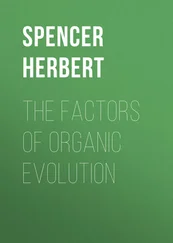Here, then, in the advance of natural-history-classification, are two fundamental facts, which should be borne in mind when classifying the emotions. If, as Mr. Bain rightly assumes, the emotions are to be grouped after the natural-history-method; then it should be the natural-history-method in its complete form, and not in its rude form. Mr. Bain will doubtless agree in the belief, that a correct account of the emotions in their natures and relations, must correspond with a correct account of the nervous system—must form another side of the same ultimate facts. Structure and function must necessarily harmonize. Structures which have with each other certain ultimate connexions, must have functions which have answering connexions. Structures which have arisen in certain ways, must have functions which have arisen in parallel ways. And hence if analysis and development are needful for the right interpretation of structures, they must be needful for the right interpretation of functions. Just as a scientific description of the digestive organs must include not only their obvious forms and connexions, but their microscopic characters, and also the ways in which they severally result by differentiation from the primitive mucous membrane; so must a scientific account of the nervous system include its general arrangements, its minute structure, and its mode of evolution; and so must a scientific account of nervous actions include the answering three elements. Alike in classing separate organisms, and in classing the parts of the same organism, the complete natural-history-method involves ultimate analysis, aided by development; and Mr. Bain, in not basing his classification of the emotions on characters reached through these aids, has fallen short of the conception with which he set out.
"But," it will perhaps be asked, "how are the emotions to be analyzed, and their modes of evolution to be ascertained? Different animals, and different organs of the same animal, may readily be compared in their internal structures and microscopic structures, as also in their developments; but functions, and especially such functions as the emotions, do not admit of like comparisons."
It must be admitted that the application of these methods is here by no means so easy. Though we can note differences and similarities between the internal formations of two animals; it is difficult to contrast the mental states of two animals. Though the true morphological relations of organs may be made out by observation of embryos; yet, where such organs are inactive before birth, we cannot completely trace the history of their actions. Obviously, too, pursuance of inquiries of the kind indicated, raises questions which science is not yet prepared to answer; as, for instance—Whether all nervous functions, in common with all other functions, arise by gradual differentiations, as their organs do? Whether the emotions are, therefore, to be regarded as divergent modes of action that have become unlike by successive modifications? Whether, as two organs which originally budded out of the same membrane have not only become different as they developed, but have also severally become compound internally, though externally simple; so two emotions, simple and near akin in their roots, may not only have grown unlike, but may also have grown involved in their natures, though seeming homogeneous to consciousness? And here, indeed, in the inability of existing science to answer these questions which underlie a true psychological classification, we see how purely provisional any present classification is likely to be.
Nevertheless, even now, classification may be aided by development and ultimate analysis to a considerable extent; and the defect in Mr. Bain's work is, that he has not systematically availed himself of them as far as possible. Thus we may, in the first place, study the evolution of the emotions up through the various grades of the animal kingdom: observing which of them are earliest and exist with the lowest organization and intelligence; in what order the others accompany higher endowments; and how they are severally related to the conditions of life. In the second place, we may note the emotional differences between the lower and the higher human races—may regard as earlier and simpler those feelings which are common to both, and as later and more compound those which are characteristic of the most civilized. In the third place, we may observe the order in which the emotions unfold during the progress from infancy to maturity. And lastly, comparing these three kinds of emotional development, displayed in the ascending grades of the animal kingdom, in the advance of the civilized races, and in individual history, we may see in what respects they harmonize, and what are the implied general truths.
Having gathered together and generalized these several classes of facts, analysis of the emotions would be made easier. Setting out with the assumption that every new form of emotion making its appearance in the individual or the race, is a modification of some pre-existing emotion, or a compound of several pre-existing emotions, we should be greatly aided by knowing what always are the pre-existing emotions. When, for example, we find that very few of the lower animals show any love of accumulation, and that this feeling is absent in infancy—when we see that an infant in arms exhibits anger, fear, wonder, while yet it manifests no desire of permanent possession, and that a brute which has no acquisitiveness can nevertheless feel attachment, jealousy, love of approbation; we may suspect that the feeling which property satisfies is compounded out of simpler and deeper feelings. We may conclude that as, when a dog hides a bone, there must exist in him a prospective gratification of hunger; so there must similarly at first, in all cases where anything is secured or taken possession of, exist an ideal excitement of the feeling which that thing will gratify. We may further conclude that when the intelligence is such that a variety of objects come to be utilized for different purposes—when, as among savages, divers wants are satisfied through the articles appropriated for weapons, shelter, clothing, ornament; the act of appropriating comes to be one constantly involving agreeable associations, and one which is therefore pleasurable, irrespective of the end subserved. And when, as in civilized life, the property acquired is of a kind not conducing to one order of gratification in particular, but is capable of administering to all gratifications, the pleasure of acquiring property grows more distinct from each of the various pleasures subserved—is more completely differentiated into a separate emotion.
This illustration, roughly as it is sketched, will show what we mean by the use of comparative psychology in aid of classification. Ascertaining by induction the actual order of evolution of the emotions, we are led to suspect this to be their order of successive dependence; and are so led to recognize their order of ascending complexity; and by consequence their true groupings.
Thus, in the very process of arranging the emotions into grades, beginning with those involved in the lowest forms of conscious activity and ending with those peculiar to the adult civilized man, the way is opened for that ultimate analysis which alone can lead us to the true science of the matter. For when we find both that there exist in a man feelings which do not exist in a child, and that the European is characterized by some sentiments which are wholly or in great part absent from the savage—when we see that, besides the new emotions which arise spontaneously as the individual becomes completely organized, there are new emotions making their appearance in the more advanced divisions of our race; we are led to ask—How are new emotions generated? The lowest savages have not even the ideas of justice or mercy: they have neither words for them nor can they be made to conceive them; and the manifestation of them by Europeans they ascribe to fear or cunning. There are æsthetic emotions common among ourselves, which are scarcely in any degree experienced by some inferior races; as, for instance, those produced by music. To which instances may be added the less marked but more numerous contrasts that exist between civilized races in the degrees of their several emotions. And if it is manifest, both that all the emotions are capable of being permanently modified in the course of successive generations, and that what must be classed as new emotions may be brought into existence; then it follows that nothing like a true conception of the emotions is to be obtained, until we understand how they are evolved.
Читать дальше












